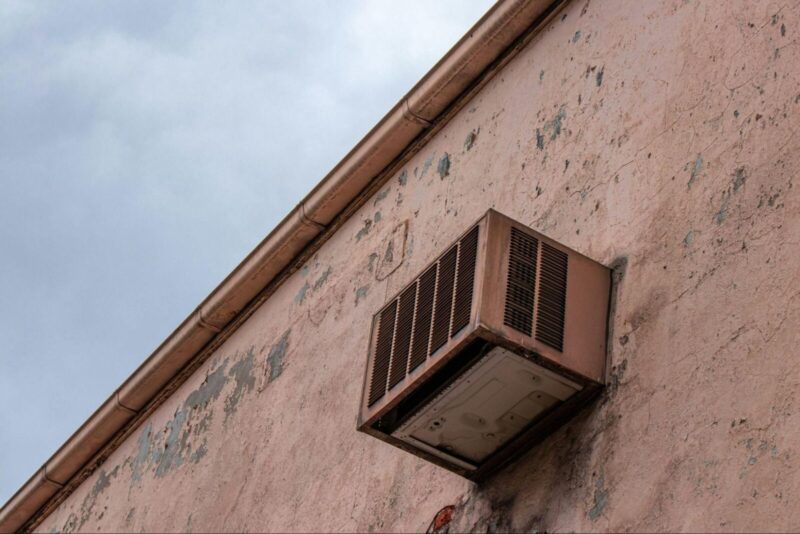There could be numerous causes for your AC to stop working properly; understanding which may be at play can help determine if repairs or a replacement are required.
An AC repair service technician should regularly replace your filters as part of a cost-effective way to improve air quality and improve comfort.
Faulty Thermostat

The thermostat is one of the most essential AC system components, yet homeowners often neglect its importance. A defective thermostat can lead to various common air conditioning problems that undermine both comfort and energy efficiency.
First sign of a malfunctioning thermostat may be its inactivity; when this occurs, it can be serious, so it is crucial to take immediate steps to rectify this issue as soon as possible. One easy solution would be replacing its batteries as this can often help resolve many problems quickly.
Signs of a broken thermostat include discrepancies between the living space temperature and what has been set on the thermostat, or when programmable thermostats no longer remember their schedule settings. If any of these symptoms appear, it’s imperative that an HVAC specialist is contacted immediately. You can visit this site for more information.
At times, thermostats that don’t respond to commands could be due to faulty sensors or wiring. Sensors detect when an air conditioner has reached its target temperature; dust, smoke and other contaminants can damage them and make them inoperable. Furthermore, it’s essential that wiring connections be regularly checked for damage and corrosion – frayed wires could lead to loose connections which could necessitate replacement of your thermostat altogether.
Failed Contactor
Contactors are essential components of an air conditioning system as they open and close electrical circuits that supply electricity to components like compressors, fan motors, and other AC unit parts. Their main function is allowing electricity into appliances until needed for shutoff; then switching it back off again afterward.
Over time, metal contacts in an AC contactor can wear down over time due to constant use and exposure to environmental factors like dust, dirt and corrosion, leading to excessive heat output that produces visible burn marks and an unpleasant odor that indicates it may be time for replacement.
Humming or chattering noises coming from an AC unit are another sure sign of a failing contactor, caused by its coils and contact metal becoming fused together, preventing it from providing sufficient separations to either allow power through or stop power from flowing through them.
Bad AC contactors can negatively impact both your unit’s performance and lifespan, creating burning marks, inability to switch off system, or an inability to restart at all. You can click the link: https://www.quora.com/What-is-the-AC-contactors-main-function to learn more. Recognizing these symptoms early will help avoid costly repairs down the line; should any warning signs appear, seek expert assistance immediately from an AC repair technician.

Failed Blower Motor
A blower motor is a critical component of HVAC systems that work alongside fans to distribute either heated or cooled air throughout your home. A failed blower motor may lead to various issues and should be immediately addressed by an experienced professional.
Consistent airflow is one of the telltale signs that a blower motor has failed. This issue could stem from anything from dirty or aged blower motors needing replacement to fan control relay issues and leaky ductwork causing fluctuations.
An unusually high energy bill may also be a telltale sign of blower motor failure. Since more energy must be expended to circulate the air through it, more electricity will be consumed to do so.
Burning smells coming from your blower motor could be a telltale sign that it has sustained damage due to overheating. In this case, it is imperative for you to find AC Repair Canal Winchester to service your unit as soon as possible. Modern blower motors contain electronics to prevent their overheating; older models, however, could overheat due to friction or improper lubrication.
Use a multimeter to inspect your blower motor for damage using resistance measurements across its windings. Before testing, be sure the motor is completely cool; measure voltage between G and C terminals of your black box to see 24V between these terminals; if overheating occurs, these contacts may melt or pit due to frequent high current contact inside.
Blown Capacitor

If you notice warm or weak air blowing through your vents, a failing capacitor could be to blame. Capacitors provide electrical boost to motors which power your AC compressor and fan; without them running at full capacity, your air conditioning may struggle to deliver cooling resulting in decreased airflow and higher energy bills.
Your HVAC system might also produce an electronic hum when you start up, which indicates that its capacitor has failed to start both compressor and fan properly. In such instances, it is wise to contact an HVAC specialist immediately for help.


